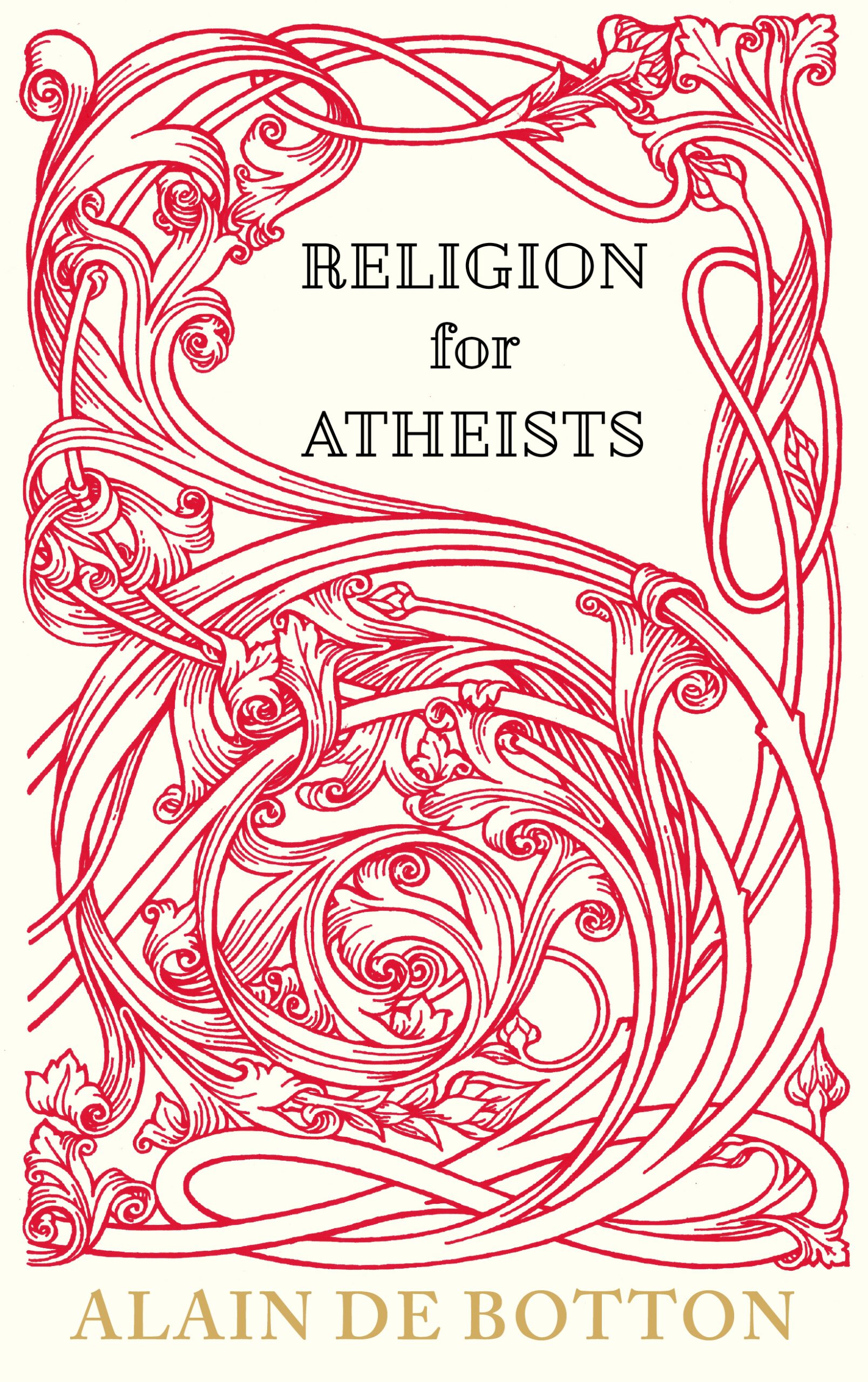Readers feeling jaded by the ‘religion poisons everything’ polemics of recent years would do well to spend an afternoon in a hammock with the latest work from Alain de Botton, which serves as a both a salve and counterpoint to the New Atheist arguments that paint religion as an unrelentingly negative and irrational force. And yet, as de Botton acknowledges, his Religion for Atheists, is likely to offend both the faithful and the faithless.
The premise of the book is that we ought to be able to ditch belief in God and the supernatural, which is clearly nonsense, and yet turn to the formidable wisdom of religion (by which de Botton mostly means Christianity) to foster feelings of community, to promote kindness, to find consolations for our suffering lives and to circumvent the perils of overblown consumerist culture.
Readers are reminded of the role of religion in providing education for life rather than just a job, along with a healthy perspective on our fleeting and fragile existences. De Botton believes that secular culture can take lessons from the church’s instruction on how to live productive and meaningful lives, how to foster marriages and families, as well as harness institutions, architecture and art for the greater good.
De Botton’s writing is beautiful, funny and at times very moving. He is especially gifted in conveying the anguish of the human condition and religion’s role in helping us to cope. He sees the Judeo-Christian notion of original sin as a “usefully sober vision, of the kind that the secular world has been too sentimental and cowardly to embrace … “ We are all of us, says de Botton, desperate, fragile, vulnerable creatures, less wise than we are knowledgeable, always on the verge of anxiety, tortured by our relationships, and terrified by death.
Faced with such self-knowledge a Christian feels impelled to submit to God, while de Botton, a life-long atheist, sees it merely as an important first step on a road to virtue and shared improvement. He says we need help in knowing how to live and Christianity’s contribution has been to create a moral atmosphere where people can point out their flaws to one another and acknowledge room for improvement. A stark contrast is the modern libertarian avoidance of judgement at all costs which, de Botton believes, leaves us with plenty of freedom but in desperate need of voices that dare to exhort us to act well; to forgive others, to be slow to anger, to treat people with kindness and to love and live well together.
De Botton draws on the Old Testament book of Job as a means of contemplating our own insignificance in the face of the size and mystery of the universe and the awesome fact of existence. He argues for a secular space where we are able to meditate on our smallness and avert the sense that we are the psychological centre of all things and the masters of our destinies. De Botton laments the tendency of modern life to trample on the rhythms of the earth, to deny death and shy away from the harsh edges of reality.
There is much here that will resonate with all those who reject a thoroughly materialistic explanation of life and existence. Yet, de Botton leaves us with many unanswered questions. He is very clear, and surprisingly dismissive, about the possibility of the existence of God and a supernatural realm. His tone is distinctly condescending in this regard. Yet he readily talks about the human ‘soul’, about ‘transcendence’, and ‘mystery’—categories that necessarily entail something beyond the purely material/physical reality. It’s not at all clear where de Botton thinks those things come from or how we would explain them without some sense of a spiritual dimension. The same applies to his notion of the good, the true and the beautiful—concepts he is very interested in.
Ultimately, the argument of Religion for Atheists looks like a pipe dream. Friedrich Nietzsche, the great 19th Century atheist, was under no illusion that humanity could jettison Christian belief and yet retain Christian morality in diluted form. Yet de Botton clings to the notion that we can do away with the foundation of faith and yet hold on to the best elements that faith brings.
A perfect example of this is his discussion of community. De Botton rightly sees it as the genius of the early Christian church to be able to bring together in a single community of equality and love, people of different ages, genders, classes, status and levels of wealth and education.
He beautifully articulates the wonder of the revolutionary change that Christianity brought to the Western World in the dignity and worth it ascribed to each life in relation to the other. De Botton hopes for something similar in a secular environment but seems to forget that the only reason such a dynamic ever worked is because the Christian believers to whom he refers situated themselves within a story that they believed to be true.
That is the story of the one true God coming in human form to, effectively, kneel down and wash all our feet. There can be no greater leveller than that, and it’s the only reason Christianity, at its best, has been able to unite such disparate groups of people. Readers are left wondering where de Botton thinks we might source such profoundly moving and motivating concepts once we have forced God from the building and bolted the door on his possible return.
Simon Smart is a Director of the Centre for Public Christianity